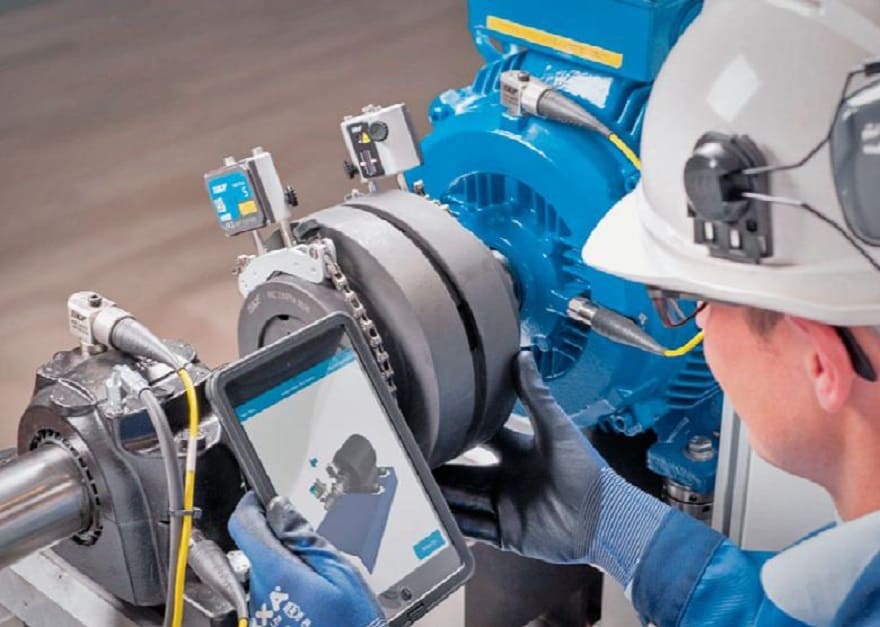Many cooks refine the broth
A good sustainability recipe is based on many details. In order to meet the ever-increasing customer and environmental requirements, food and beverage manufacturers in particular must provide their eco-strategy with the right technical production ingredients. This requires the close cooperation of various "cooks".

The food and beverage industry in particular knows that sustainability is indispensable: More and more customers are now turning to environmentally and socially responsible products. The manufacture of these products should consume as little energy or water as possible - for cost reasons, among other things. In addition, various stakeholders expect such products to generate as little waste as possible during their life cycle. In addition, there are official regulations that require, for example, that neither the soil nor waterways or the atmosphere are polluted: Many governments across the planet are still working to meet the targets set at the 2015 UN Climate Change Conference in Paris, for example, to counteract global warming caused by greenhouse gases.
Against this background, it is not surprising that many global players in the food and beverage industry have set themselves high sustainability targets. Diageo, for example, aims to safely recycle 100 % of its waste. Unilever has set itself the goal of reducing the greenhouse gas emissions of its products by 50 % in relation to the full life cycle. And Nestlé wants to stop sending product waste to landfill. All this is to be achieved by 2020.
The environmental commitment of these and other industry giants is definitely admirable; moreover, their goals are absolutely significant - but unfortunately these goals are not quite so easy to achieve. In the day-to-day production process, "sustainability performance" depends crucially on many details in the processes and not least on the optimal maintenance measures.
Details critical
In production practice, countless corporate decisions have an impact on the "summed up" sustainability of the company. The corresponding spectrum ranges from the procurement of operating resources to the choice of production technologies and the design of logistics. Based on this knowledge, numerous food and beverage manufacturers have already implemented comprehensive changes. For example, they have encouraged their suppliers to use more efficient farming methods; they themselves have used more efficient machinery in their production facilities or obtained the electricity for this from renewable sources.
Strategy needs tactics
Of course, all this leads in the right direction. And yet strategic measures such as these are often only effective to a limited extent. For a better understanding, a typical "tactical" example from practice: In the area of "energy efficiency", it is often decided to replace the electric motors used to drive pumps, mixers and other equipment with more efficient units. An 18.5 kW IE1 electric motor may have a rated efficiency of 89.3 %, while the same IE3 motor may have an efficiency of 92.6 %.
Such an increase in efficiency of 3.3 % is definitely worthwhile in itself. But if the pump driven by this motor is insufficiently maintained, or if shaft misalignments lead to increased friction in the corresponding machine, the resulting energy losses can be greater than the gains achieved by such motor specification improvements.
Shaft alignment versus CO2
In a food and beverage plant, twelve pumps were suffering from high vibration and wear. The cause of the problem was identified by the operations team, working with SKF, as poor shaft alignment. Precision alignment not only led to improvements in noise, vibration and reliability, but also reduced the energy consumption of one pump by a whopping 20 %. On average, a 16 percent reduction was achieved for the dozen pumps.
This measure has enabled the company to reduce its electricity consumption by over 9,000 kWh per year and pump, which - across all twelve pumps - equates to around 28 tonnes of avoided CO2 emissions per year. Since some food or beverage factories use several hundred of these pumps, improvements like this can multiply very quickly.
Environmentally friendly lubrication
The increase in plant availability plays an equally important role. In the event of an unplanned shutdown, most companies keep the other machines in the plant running while repairs are carried out. The result is increased energy consumption per unit produced.
Many unplanned downtimes can be counteracted very effectively by professional lubrication, among other things. Often, lubrication management is even considered a decisive factor for the performance of a machine. As good lubrication practice is therefore essential for plant reliability, the issue - in the context of sustainability - is not simply whether to relubricate, but rather how to achieve an optimum result with minimum environmental impact.
For example, dry cleaning of warehouses can result in work materials such as gloves, cleaning cloths and other paper towels being contaminated with grease and then incinerated. This, however, contradicts the approach of the "Zero Landfill" initiative, which advocates a shift from a "disposal philosophy" to prevention-oriented practices.
During wet cleaning using high pressure, excess grease is washed out of the bearings and can therefore possibly enter the waste water. In addition, lubricants spreading in the production environment can endanger not only the work safety of the operators but also food safety.
Diverse possibilities
Consequently, the food and beverage industry is well advised to optimize its lubrication processes with a view to operator and food safety, as well as cost reduction and environmental protection. It may sound surprising, but when it comes to big challenges of this kind, it really is a good idea to start small: Highly efficient seals can limit the ingress of water into the bearings, thereby helping to avoid unexpected failures and also extending the replacement intervals.
The use of automated lubrication systems, with which the lubricant quantity can be precisely controlled, goes one step further. This in turn reduces consumption, minimises the risk of contamination and reduces the amount of manual work required.
The most effective and efficient solution is to use bearings that are lubricated for life, helping manufacturers to stop the required but problematic cycle of high-pressure cleaning and re-forging. Such bearings already exist - and SKF is constantly working to optimize them. Technologies such as these often provide multiple benefits to food and beverage companies, reducing operating costs while helping to achieve ambitious sustainability and food safety goals.
The search for the right recipe
In day-to-day operations, the greatest challenge in exploiting these added values is often enough to discover them in the first place. Often, even large and well-equipped "sustainability departments" do not have sufficiently detailed technical production plant know-how to anticipate the enormous "ecological effects" of comparatively small optimization measures. And the employees who are most likely to do so - such as operations or maintenance experts - usually have other priorities.
So a cultural shift is required: only when sustainability responsibility permeates the entire organisation - with efficiency and waste reduction targets given equal priority to quality, productivity and safety targets - will food and beverage companies have the "recipe" for excellence.
find a long-term solution.









